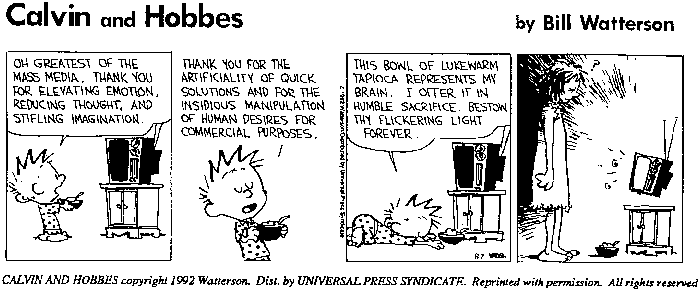
I don’t own a TV. This is more a statement of my own lack of self control then it is a defiance of culture. If there is a television in front of me and I am anyway remotely bored, I will watch it. So because of this I found myself over at Raghu’s apartment last night in order to watch The Office and hang out. It seems that all the networks are coming out with new shows at the moment because the commercial breaks were peppered with premiers that I must see. I must add that with all the crap being processed out there, I am in no way regretting my decision not to own a TV. But with the temptation to be gluttonous out of the way, I will catch The Office and Lost. Probably on the internet.
So to close, here are a few quotes from Dwight from The Office:
“Whenever I’m about to do something, I think “would an idiot do that?” and if they would, I do not do that thing.”
“I am fast. To give you a reference point I am somewhere between a snake and a mongoose…and a panther.”
“No. Don't call me a hero. Do you know who the real heroes are? The guys who wake up every morning and go in their normal jobs and get a distress call from the commissioner and take off their glasses and change into capes and fly around fighting crime. Those are the real heroes.”
So to close, here are a few quotes from Dwight from The Office:
“Whenever I’m about to do something, I think “would an idiot do that?” and if they would, I do not do that thing.”
“I am fast. To give you a reference point I am somewhere between a snake and a mongoose…and a panther.”
“No. Don't call me a hero. Do you know who the real heroes are? The guys who wake up every morning and go in their normal jobs and get a distress call from the commissioner and take off their glasses and change into capes and fly around fighting crime. Those are the real heroes.”












